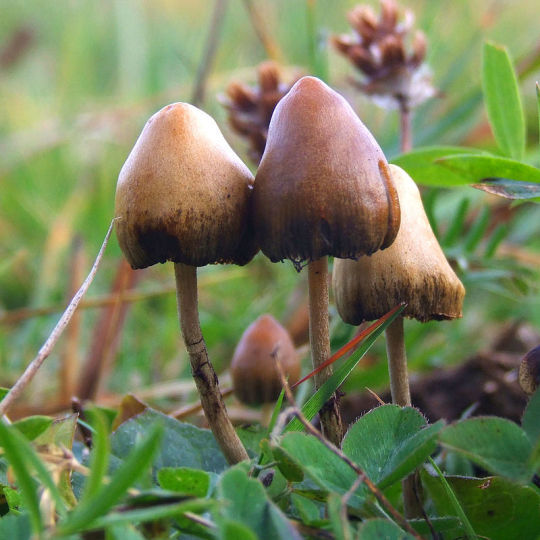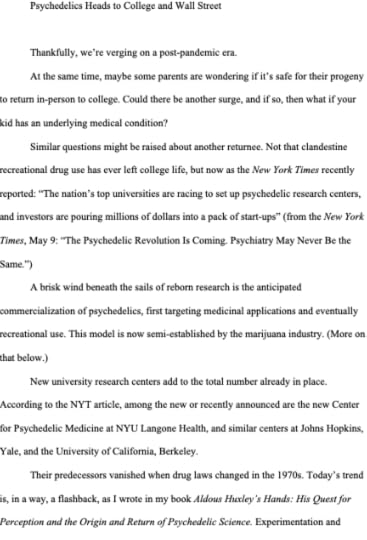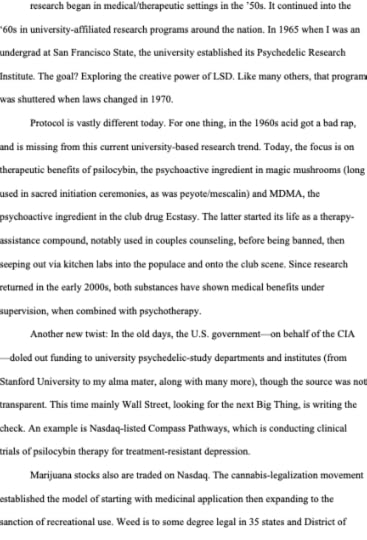Allene Symons's Blog
January 29, 2025
Psychedelics in Egyptian Antiquity Expands Map
Residue of hallucinatory plants was recently discovered on the inner surface of an Egyptian drinking mug from the second century B.C., a mug bearing the face of the Egyptian god, Bes, associated with fertility and revelry. Other recent studies have shown that the Greeks and Romans ingested plants with psychedelic properties for reaching spiritual states or as part of medical treatment.
This finding expands the map of places where plants with psychedelic effects played an early role in medicinal and spiritual rituals. In the west, hallucinogenic mushrooms, morning glory seeds and the peyote cactus were used in Mesoamerica in rituals by the Maya, Aztec, Olmec and Zapotec cultures. Cultures in the Amazon basin partook of ayahuasca (“vine of the soul” in the Quechua language), a brew of plants with hallucinogenic properties. In the Vedic period of India, as mentioned in the Rigveda (1500 BCE), the juice of the plant soma was used in sacrificial rituals and said to impart divine power.
Sources: New York Times (Nov. 28, 2024 by Alexander Nazaryan; Tanasi et al Scientific Reports https://www.nature.com/articles/s41598-024-78721-8; image
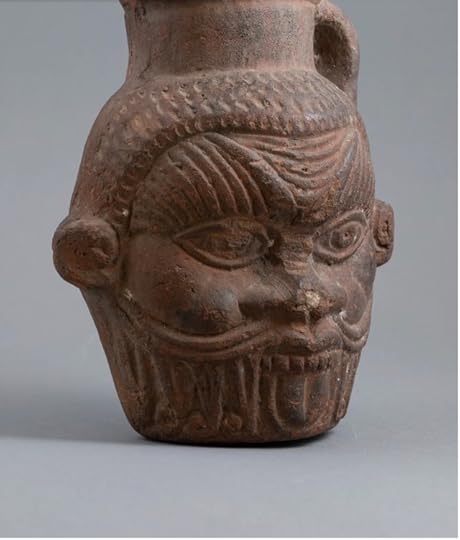
August 26, 2024
A Psychedelic Pause
To me, recent news echoes like a throwback. I’m thinking of early psychedelics studies with patients in the 1950s conducted by Aldous Huxley’s friend the psychiatrist Dr. Humphry Osmond, known for coining the word psychedelic. Osmond is shown here on a casual day in the country (photo courtesy of the Humphry Osmond family).
Maybe some of us are experiencing psychedelic déjà vu. Is this like 1966 (when LSD became illegal, starting in California) or the mid ‘80s when MDMA joined the list of Schedule I drugs?
Not long ago, a constant online chorus heralded the momentum of psychedelic research rolling towards pending Federal Drug Administration approval of MDMA. Also known by its street name Ecstasy or molly, this substance was central to studies conducted this past decade by Lycos Therapeutics. The goal was to demonstrate that MDMA is beneficial for use in a clinical setting for treatment of Post-traumatic stress disorder.
Had it been approved for medical use and proven safe it would also overturn its current standing as a Schedule I drug defined (in part) as “with no currently acceptable medical use and a high potential for abuse,” as stated by the Drug Enforcement Agency.
But this month the FDA rejected the Lycos Therapeutics application on the grounds that, among other issues, the data did not lead to the conclusion that the drug is safe and effective. At a minimum, further studies would be needed. Even the design of the study was questioned, and one reason was because some researcher/therapists conducting sessions with subjects had previously or were currently taking MDMA (not necessarily in that same session’s timeframe, but still…).
And that brings me back to Dr. Humphry Osmond, one of the pioneers of psychedelic research before it became illegal in the 1970s. As I write in my book Aldous Huxley’s Hands: His Quest for Perception and the Origin and Return of Psychedelic Science, Dr. Osmond’searly work in the ‘50s involved mescalin, which he arranged to give to Huxley (at his request), and that experience inspired Huxley to write The Doors of Perception.
At the same time, Osmond and his psychiatric colleague Dr. John Smythies realized that mescalin induced an experience like schizophrenia, and that made it useful for studying schizophrenic patients. Dr. Osmond believed the therapist should try the drug in order to better understand the patient.
Now, this post is partly in reaction to today’s (August 24) New York Times Guest Opinion by science writer Caty Enders: “How Psychedelic Research Got High on Its Own Supply.” It also ran in the Sunday NYT. The enthusiasm for benefits of psychedelic use in conjunction with therapy, as Enders notes, has led to the use of MDMA by many researchers involved in this study (and purportedly in ongoing studies of other psychedelics). Such involvement arguably undercuts the objectivity of the researcher, hence the the title of the opinion piece, ‘…getting high on their own supply.’
In part this is out in the open. Some claim it is beneficial for researchers and therapists involved in psychedelic studies not to avoid, but to experience, the high. Dr. Rick Doblin is a high profile advocate of this view. He resigned this month as head of Lykos after FDA rejected its applications. Doblin, who founded the nonprofit Multidisciplinary Association for Psychedelic Studies (MAPS), is on record as asserting that therapists using MDMA with clients should experience the drug they are working with.
And that brings me back to the history of this viewpoint and Dr. Humphry Osmond, one of the pioneers of psychedelic research before it became illegal in the 1970s. As I write in my book, Osmond’searly work in the ‘50s involved the psychedelic mescalin, which he (along with colleague Dr. John Smythies) discovered how it induced a mental state similar to schizophrenia. To Osmond, this made it useful for studying schizophrenic patients. Moreover, he believed it was beneficial for the therapist to try the drug in order to experience a disturbance similar to, and helpful for understanding, the mental state of their patients.
Of course, I have no way to judge the merits of the study by Lykos Therapeutics. According to reports, there were a number of issues, including ethical questions, that caused the FDA to reject the data and results presented in the study.
I’m just saying…it feels a bit like déjà vu to me.
April 11, 2024
Tripping With Our Multitude of Senses
Whoa, Ashley Ward! Your new book on the senses called Where We Meet the World held me mesmerized. Yes, you’re scholarly but in a page-turning way. I couldn’t help but think – as you remind us how the sight- and hearing challenged develop strength in other senses to perceive the world – of how Aldous Huxley, nearly blind since youth, found his way around his home and through life with a sense of hearing, touch and location largely dormant in the rest of us. You tour us through so many more senses than the five we usually think of. The way these and more cross over (as in synesthesia, where someone might hear music and perceive color) is, as you explain, pretty amazing! What about interoception? The sense of the body’s internal state. Wow. Surprising, too, how one culture might give prominence to a sense that another culture might regard as secondary. A full-of-surprises book.
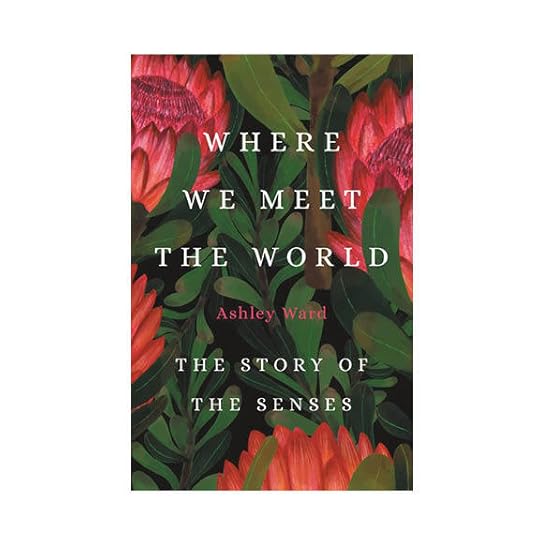
April 15, 2023
Psychedelics Gift to the Terminal
(photo credit, Mamadi Doumbouya, New York Times Magazine)
When a noted pioneer in the field of psychedelics walks the ultimate walk, it is high time to pay attention. That is what the New York Times Magazine did on April 9 in a four-page interview with Dr. Roland Griffiths, founding director of the Johns Hopkins Center for Psychedelic and Consciousness Research.
For over a decade, Griffiths, 76, has investigated ways psychedelics can help treat psychological distress in patients with a life-threatening cancer diagnosis. Now he is such a patient himself, for he has been diagnosed with Stage 4 metastatic colon cancer.
Yet in the interview with NYT Magazine’s Talk Editor David Marchese, it is evident that not despite but because of the diagnosis, Griffiths finds himself experiencing an unexpected and heightened kind of perception. An awareness, especially of how precious life is. He says he did not need extra trips to reach this state, but arguably his work with terminal patients and previous direct experience with psychedelics has given him a mind set of readiness for the final trip.
In the early 1960s - before research in the field was banned until it gradually resumed starting around year 2000) - among the many kinds of exploratory studies were those looking at the application of psychedelics as a psychological aid to terminal patients, studies then indicating positive results.
That was around the same time as Aldous Huxley made a final, personal choice. It was November 22, 1963, by sheer coincidence the same day as JFK’s assassination. The incident at Huxley’s home in the Hollywood Hills also dealt with death, but on Huxley’s terms. An exploration of the final moments of consciousness.
As he lay dying of cancer when the end was near, he scribbled a note to his wife, Laura Archera Huxley, asking for an intramuscular dose of LSD. Apparently it was planned; the LSD was on hand. Unlike his reflection on the experience a decade earlier in his book The Doors of Perception, there was no reportage, no recording, no notes. We do not know his perception of this final act. But historically, it set a mark for someone of note and celebrity involved with psychedelic study to walk the walk, in Huxley’s case, creating an iconic biographical exit.
Now. following in Huxley’s tradition, one of the giants in modern psychedelic research, Dr. Roland Griffiths, has spoken out in the far-reaching forum of the New York Times Magazine, telling his story.
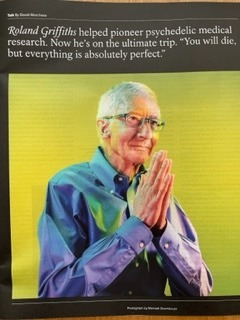
#Roland Griffiths,#terminal patients,#psychedelics,#LSD,#David Marchese,#New York Times Magazine,#Aldous Huxley,#Aldous Huxley’s Hands
April 1, 2023
January 17, 2022
What? A Psychedelic Monopoly?
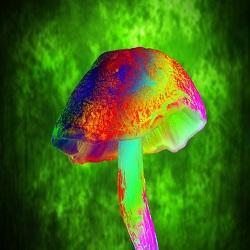
(Photo courtesy of The American Prospect)
Is a looming patent monopoly threatening progress towards making psychedelics accessible for patient health? The current question concerns psilocybin, the active ingredient in so-called magic mushrooms. Below is a link to a recent article in The American Prospect by journalist Luke Goldstein. He explains how a corporate monopoly over a synthetic version of psilocybin could push access and prices beyond the reach of many people who need the medical benefits that have been clearly demonstrated in controlled studies at major universities. This isn’t about recreational use (and doesn’t mean you can’t grow mushrooms in some cities where it is already decriminalized). But if you suffer from certain afflictions, such as depression, a monopolist block of competing providers could create drug treatments with no competitive curb on cost. This is the last thing individuals seeking treatment need, nor does a painfully strained health care system need another drug with a huge price tag (like the recently FDA approved and hugely costly drug for dementia that has shown little benefit). But Luke Goldstein says it much better than I can. Here is the link. Photo courtesy of The American Prospect.
https://prospect.org/power/rollups-emerging-magic-mushroom-monopoly/
January 16, 2022
Yup, that’s supposed to be Aldous Huxley, or rather his...
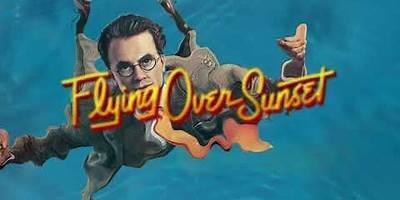
Yup, that’s supposed to be Aldous Huxley, or rather his likeness, on a promotional piece for the LSD-themed Broadway musical called Flying Over Sunset. The show has garnered critical praise (including for its psychedelic effects!) in a plot set in the 1950s that brings together Cary Grant, Clare Boothe Luce and Huxley, when the three were among the earliest notables to experiment with with psychedelics. Directed by James Lepine, known for such plays as Into the Woods, “Flying” was already scheduled for a short run but it closed early (today, actually), largely due to the unwelcome January surge of Covid. The theatrical effects are said to be stunning. (Oh, and the actor portraying Huxley is Tony nominee Harry Hadden-Patton). I’m bummed that I missed it, because I was ready to pony up for a fast turnaround to NYC (where I formerly lived for a decade), but now I’ve missed my chance. My best fingers-crossed hope is that it tours and comes to the Pantages in L.A. County , where I live now. I’d better keep my Google Alert tuned to Flying Over Sunset so I can grab a ticket if/when/as soon as it is announced.
May 21, 2021
July 26, 2020
Happy birthday Aldous Huxley, immortal in entertainment
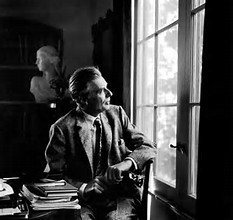
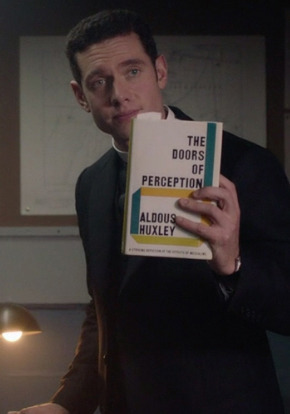
Happy birthday to Aldous Huxley (b. July 26, 1894), and though no longer with us, he was twice channelled this July. First, as author of the stylishly creepy adaptation of Brave New World, now streaming on Peacock. Also in the love and death and mind-altering drugs Episode 4 of Grantchester on PBS Masterpiece Mystery. Here is Tom Britney, as vicar Will Davenport, explaining to his detective friend what Huxley’s The Doors of Perception is all about.
July 26, 2019
Celebrating the birth of Aldous Huxley 125 years ago
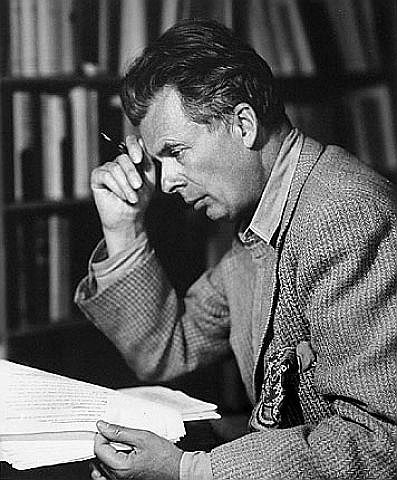
Every year come midsummer I have two reasons to celebrate: one is my birthday July 29th and the other – on July 26 – the commemoration of Aldous Huxley’s. This year marks the milestone of his birth 125 years ago. I like this photo because it shows him editing one of his manuscripts around the age when he and my father became friends. Their friendship inspired the research-adventure of writing my book Aldous Huxley’s Hands. So wherever you are in spirit, Aldous, this post’s for you.


